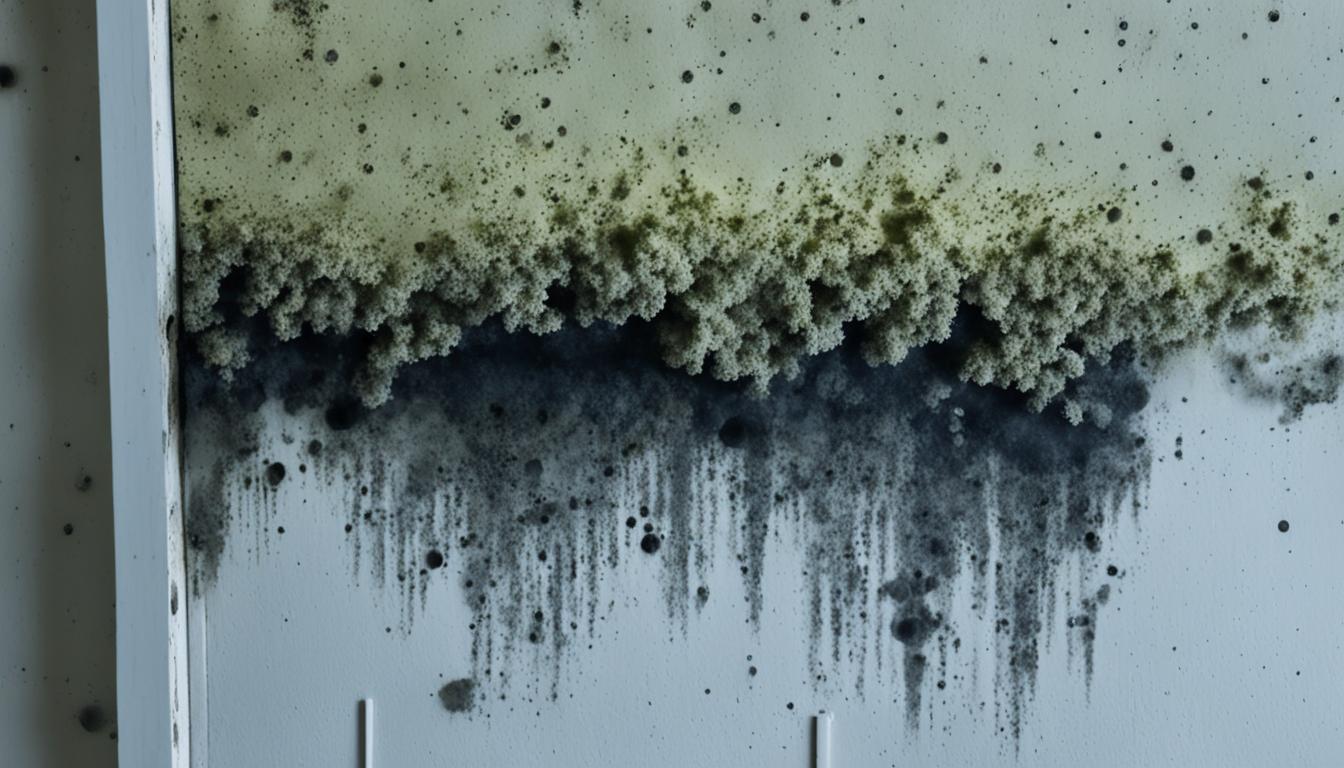
Tax Deduction for Home Mold Remediation FAQs
Welcome to our guide on claiming a tax deduction for home mold remediation. Dealing with mold issues in your home can be stressful and costly. However, there might be some relief when it comes to your taxes. In this section, we will address frequently asked questions regarding the tax deduction for home mold remediation. We will help you understand the guidelines provided by the IRS and explore the potential tax benefits available to homeowners.
If you have been struggling with mold growth in your home, you may be wondering if you can deduct these expenses on your tax return. Understanding the regulations and requirements surrounding this deduction can help you make informed decisions and potentially alleviate some of the financial burdens associated with mold removal.
Before we dive into the details, take a moment to focus on the image below, which illustrates the importance of addressing mold issues in your home:
Key Takeaways:
- Claiming a tax deduction for home mold remediation is possible in certain circumstances.
- The IRS has specific guidelines and requirements regarding mold removal tax benefits.
- Understanding the eligibility criteria and documentation needed is crucial.
- Exploring the available options for claiming the deduction can help offset the costs of mold removal.
- Contact a professional tax advisor if you have additional questions or need personalized guidance.
Understanding IRS Guidelines for Mold Removal Tax Benefits
In this section, we will delve into the IRS guidelines for mold removal tax benefits. Mold issues in homes can lead to significant expenses, but did you know that you may be eligible for a tax deduction for mold removal expenses? The IRS provides specific guidelines for homeowners dealing with mold problems.
To claim a tax deduction for mold removal, you need to meet certain criteria set forth by the IRS. First and foremost, it is important to establish that the mold problem in your home qualifies as a deductible expense.

The IRS considers mold removal expenses as tax deductible if they are incurred in connection with a trade or business or to produce income, such as rental properties. However, it’s crucial to note that mold removal expenses for personal residences may not qualify for a tax deduction.
When it comes to deductibility, the IRS allows for the deduction of expenses related to repairs, maintenance, or improvements that are necessary to keep your property in a good and habitable condition. If mold remediation is deemed necessary to maintain the habitability and structural integrity of your property, you may be eligible for a tax deduction.
It’s important to keep detailed records and receipts of all mold removal expenses, including the costs of professional mold assessment, testing, and remediation services. These records are essential if the IRS requires documentation to substantiate your claimed deductions.
Moreover, it’s recommended to consult a tax professional or CPA to ensure your eligibility and compliance with all IRS guidelines. They can provide expert advice based on your specific situation and assist you in maximizing any potential tax benefits related to mold removal.
Next, we will examine the various options available for individuals seeking to claim a tax deduction for home mold remediation. We will explore potential tax benefits related to mold remediation expenses and provide insights into how to navigate the process of claiming these deductions.
Exploring Options for Claiming a Tax Deduction for Home Mold
When it comes to mold remediation, homeowners may be relieved to know that there are options available that can help offset some of the expenses. In this section, we will explore the different avenues individuals can take to claim a tax deduction for home mold remediation. By taking advantage of these options, homeowners can potentially alleviate some of the financial burden associated with dealing with mold issues.
One option to consider is claiming a tax deduction for mold remediation expenses. Certain mold-related expenses may be eligible for tax deductions, depending on the circumstances. It is crucial to consult with a tax professional or accountant to ensure compliance with IRS guidelines and regulations.
Additionally, individuals should keep detailed records of all mold remediation expenses. This includes invoices, receipts, and any other relevant documentation. These records will be essential when claiming the tax deduction and will help support the legitimacy of the expenses incurred.
Another important consideration is understanding the specific tax benefits associated with mold remediation. These benefits may vary depending on factors such as the extent of the mold infestation and the type of property affected. Consulting with a tax professional is key to determining the potential tax benefits available and maximizing the deductible amount.
It is important to note that the tax deduction for mold remediation is subject to IRS guidelines and regulations. Eligibility requirements and deduction limits may apply. Working with a knowledgeable tax professional will ensure that you navigate the process correctly and claim the maximum tax deduction possible.
Remember, mold remediation is not only crucial for the health and safety of your home but can also have potential tax benefits. By properly documenting expenses and seeking guidance from tax professionals, homeowners can take advantage of the available tax deductions for mold remediation.
Example Mold Remediation Tax Benefits:
| Tax Deductible Mold Remediation Expenses | Non-Deductible Mold Remediation Expenses |
|---|---|
| Mold inspection and testing | Cosmetic improvements unrelated to mold |
| Mold removal and remediation services | Preventive measures to avoid mold |
| Repairing the source of mold growth (e.g., plumbing leaks) | Mold remediation for non-primary residences |
| Replacing damaged materials due to mold | Mold remediation for non-owned properties |
Understanding which mold remediation expenses are tax deductible and non-deductible will help homeowners make informed decisions and maximize their tax savings. Consulting with a tax professional or accountant will provide personalized guidance based on your specific situation and ensure compliance with IRS regulations.

Conclusion
Understanding the tax deduction options for home mold remediation is crucial for homeowners dealing with mold issues. By following the guidelines provided by the IRS and exploring potential tax benefits, individuals can potentially offset some of the costs associated with mold remediation.
Claiming a tax deduction for mold removal expenses requires careful consideration of the eligibility criteria and specific requirements set forth by the IRS. Homeowners should consult with a tax professional or refer to the IRS guidelines to ensure compliance and maximize their tax benefits.
If you are facing mold problems in your home, it is recommended to seek professional assistance from reputable companies like Fix Mold Miami. Their experts can provide mold assessment and prevention services to help you address the issue effectively. For more information, you can contact Fix Mold Miami at 305-465-6653.




